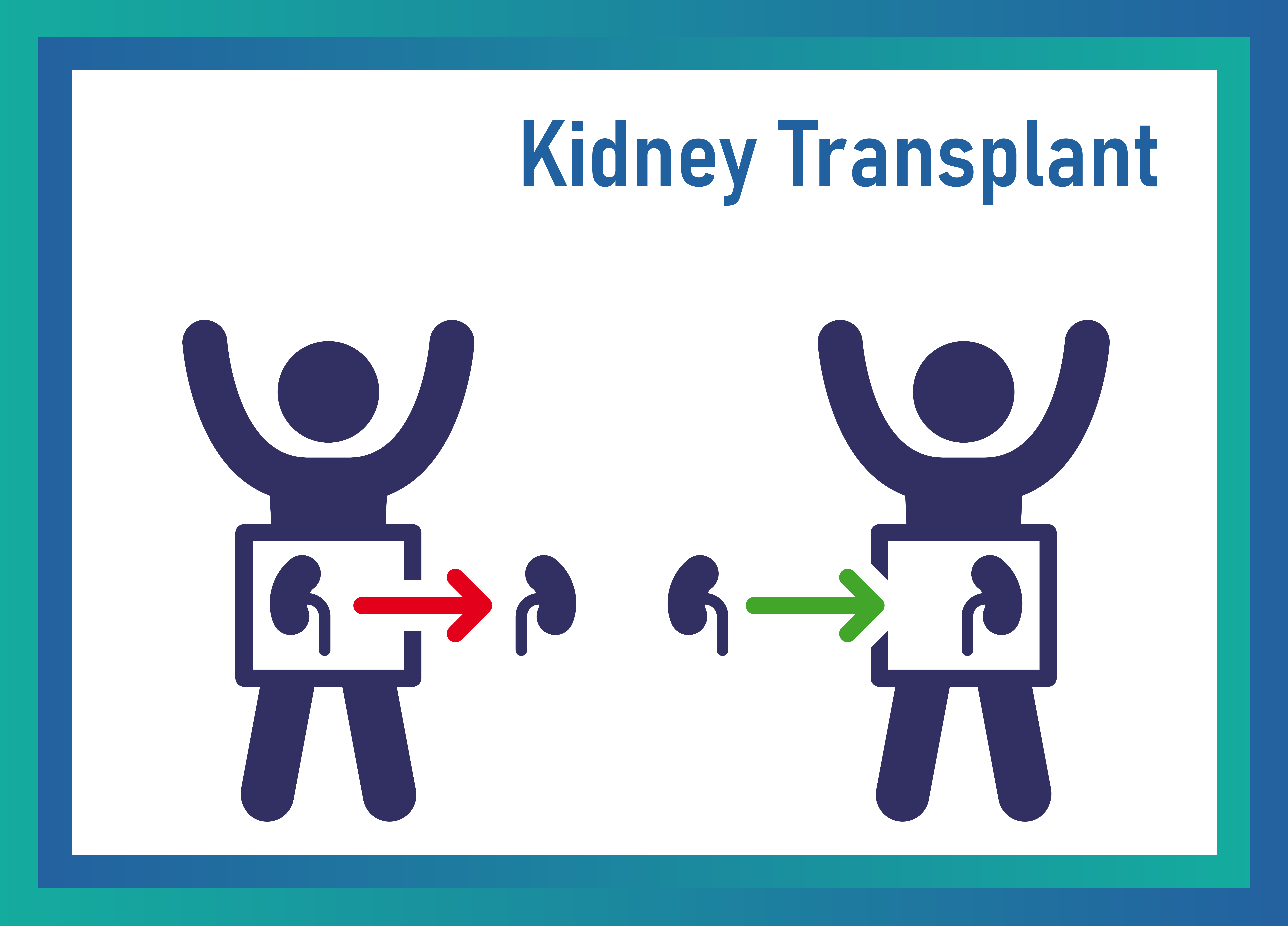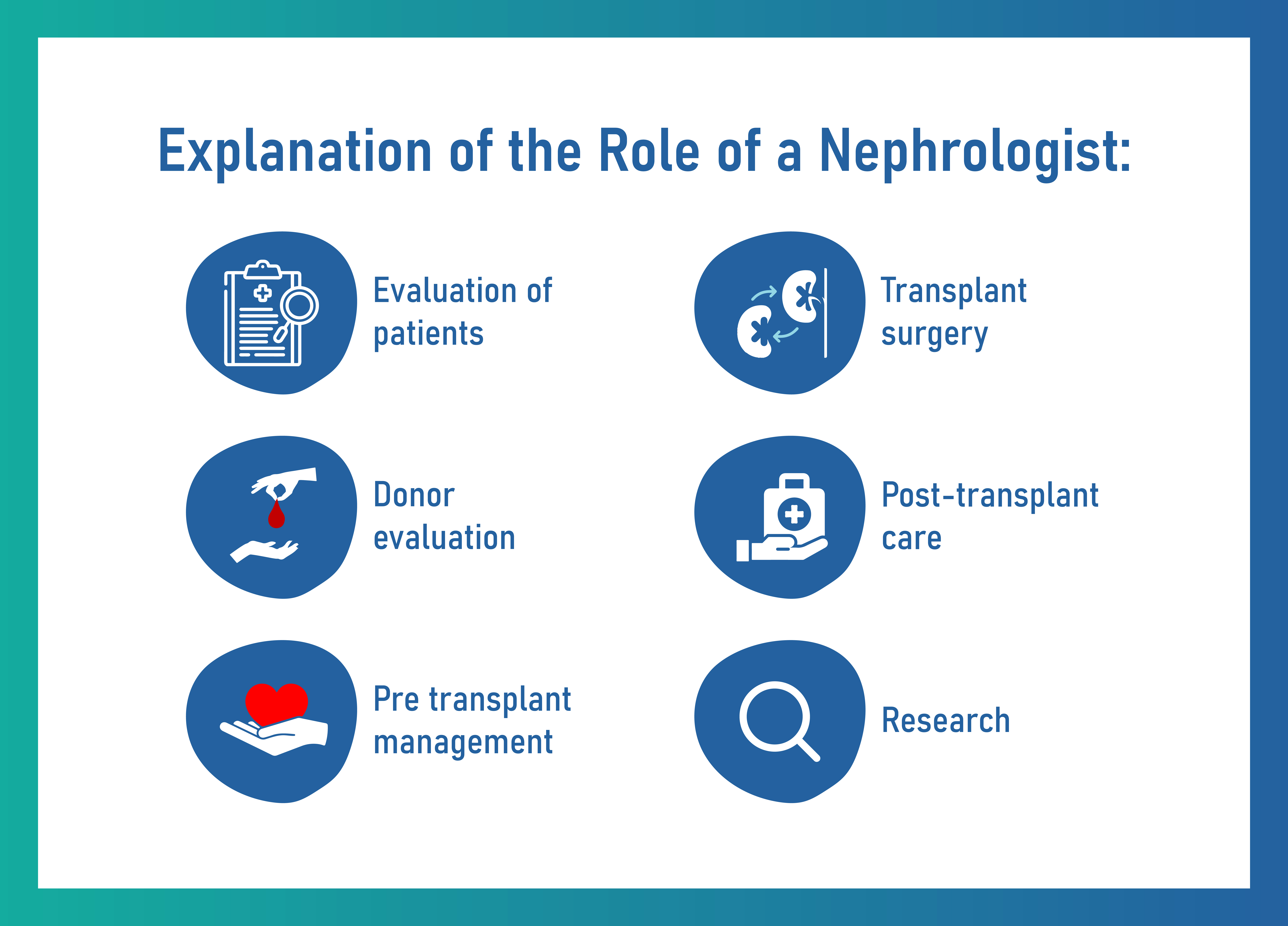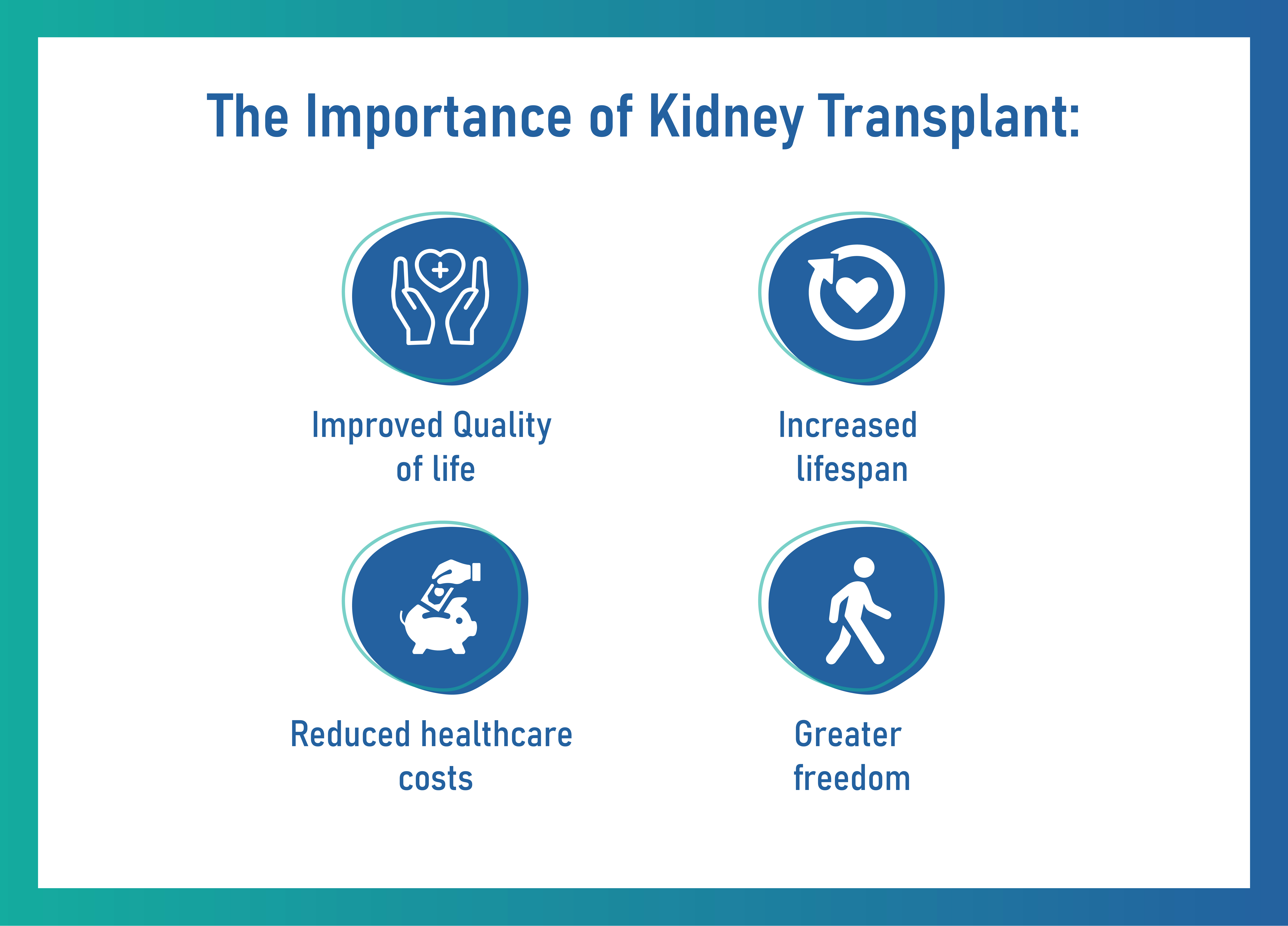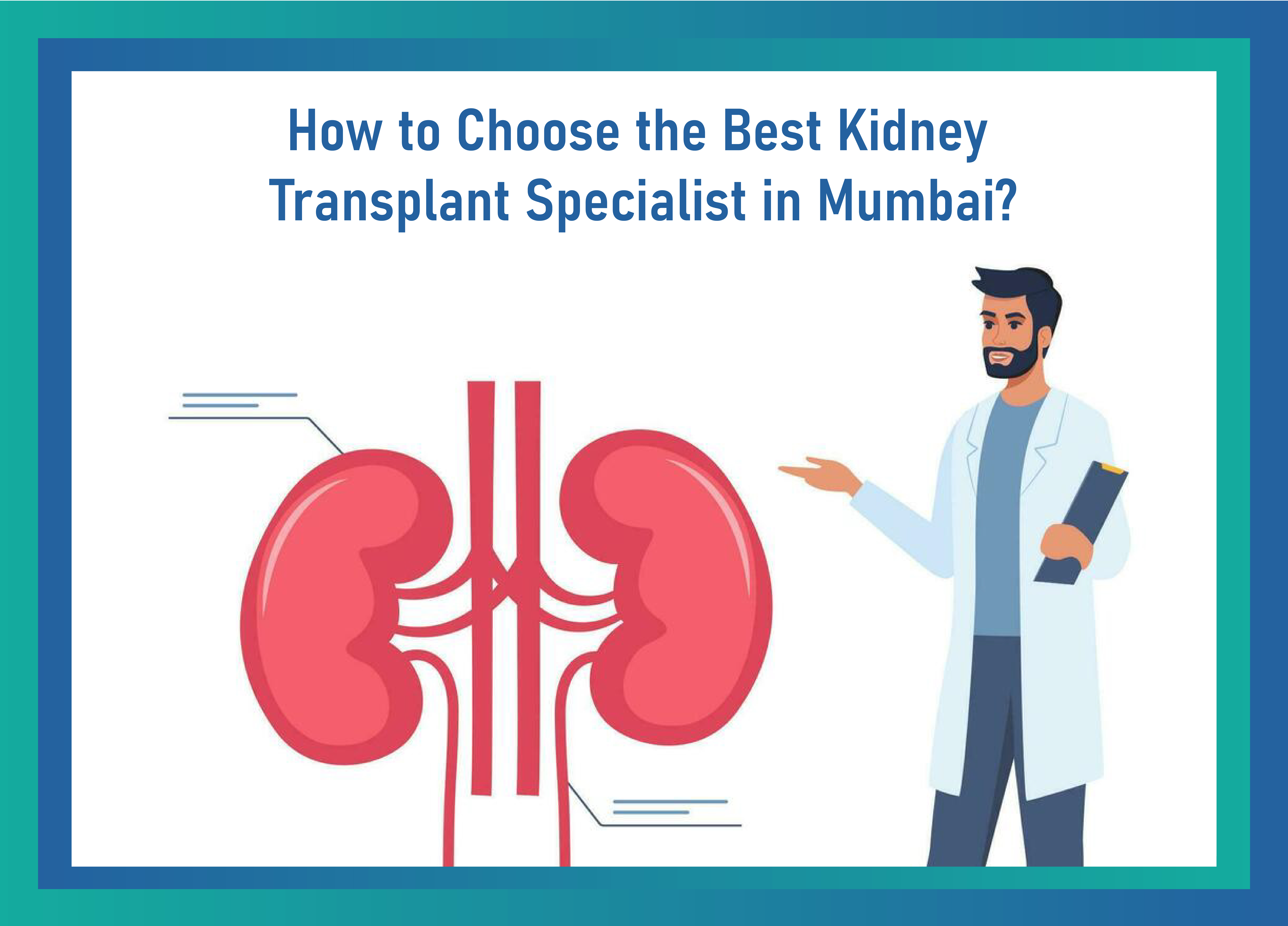Explanation of the role of a kidney transplant specialist
Dr. Vijay Patel, one of the best kidney transplant specialist in South Mumbai, plays a crucial role in the field of nephrology, specializing in the diagnosis and treatment of kidney disease. Nephrologist like Dr. Patel are highly trained medical professional who focus on the health of kidneys, which are vital organ responsible for filtering blood, removing waste products, and balancing fluid in the body. A kidney transplant specialist, often referred to as a transplant nephrologist or transplant surgeon, is a medical professional who specializes in diagnosis, treatment, and prevention of kidney diseases particularly those that require kidney transplantation.


- Evaluation of patients: They assess patients with kidney failure to determine their eligibility for a kidney transplant. This involves evaluating factors such as overall health, medical history, and compatibility with potential donors.
- Donor evaluation: They evaluate potential living donors to ensure their suitability for donating a kidney. This includes assessing their health, blood type, and overall fitness for the procedure.
- Pre transplant management: They manage patient’s pre-transplant care, which may involve adjusting medication, addressing underlying health conditions and preparing patients for surgery..
- Transplant surgery: In many cases, the transplant surgeon performs the actual kidney transplant procedure. This involves surgically placing a healthy kidney from donor into the recipient’s body.
- Post-transplant care: They oversee post-transplant care, monitoring patients for rejection, infections, and other complications. They also manage medication regimens to prevent rejection and maintain the health of the transplanted kidney.
- Research: Many transplant specialists are involved in research to improve transplant outcomes, develop new immunosuppressive medications, and explore innovative surgical techniques.
One notable nephrologist in the city is Dr. Vijay Patel. Dr. Patel is highly regarded for his expertise in nephrology and has made significant contributions to the field. He is known for his compassionate patient care and comprehensive approach to treating kidney diseases.
The Importance of Kidney Transplant:
A kidney transplant is a surgical procedure that replaces a disease or damaged kidney with a healthy one from a donor. It’s a life-changing options for individuals suffering from end-stage-renal-disease (ESRD), a condition where the kidneys are no longer able to function properly.
- Improved Quality of life: Patients who receive a successful kidney transplant often experiences a significant improvement in their quality of life. They have more energy, fewer restrictions on their diet and activities, and can enjoy a more normal lifestyle.
- Increased lifespan: Individuals who undergo kidney transplantation generally live longer than those who remain on dialysis
- Reduced healthcare costs: while the initial cost of kidney transplant can be high, the long- term saving can be substantial compared to the ongoing expenses associated with dialysis.
- Greater freedom: Dialysis often involves frequent treatments and restrictions on daily life. A kidney transplant can provide patients with greater freedom and independence.

Types of Kidney Transplant:
- Deceased Donor
Transplant:
- Source of kidney: A kidney from a deceased donor, often someone who has died of brain death.
- Waiting list: Patients must wait on a waiting list for a compatible deceased donor kidney
- Advantages: Can be a good option for patients who are unable to find a living donor.
- Disadvantages: Longer waiting times, potential for complications associated with deceased donor organs.
- Living Donor
Transplant:
- Source of kidney: A kidney from a living donor, typically a family member, friend, or spouse.
- Advantages: Shorter waiting times, often better transplant outcomes due to the health of the living donor kidney.
- Disadvantages: Potential risks for the living donor, including surgical complications and long-term health implications.
How to Choose the Best Kidney Transplant Specialist in Mumbai?

- Years of experience: Look for specialists with extensive experience in kidney transplantation.
- Specialization: Ensure the doctor specializes in kidney transplantation and related fields.
- Success rates: Inquire about the doctor's success rates in kidney transplant procedures.
- Board certifications: Check if they are board-certified in nephrology or transplant surgery.
- Hospital reputation: Consider the reputation of the hospital where the specialist practices.
- Online reviews: Read reviews and testimonials from previous patients to get insights into the doctor's approach, bedside manner, and overall patient experience.
Question to ask during first consultation
When meeting Dr. Vijay Patel, a leading kidney transplant specialist in Mumbai, here are some pertinent questions you might consider during your first consultation:
- About the Transplant Procedure:
- What is the success rate of kidney transplants at your facility?
- What are the potential risks and complications associated with the transplant procedure?
- How long is the recovery process typically?
- What medications will I need to take after the transplant?
- Are there any dietary restrictions or lifestyle changes I should be aware of?
- About Organ Donation:
- What are the different types of organ donation (living or deceased)?
- How long is the waiting list for a deceased donor kidney?
- Are there any specific criteria for becoming a living donor?
- What are the potential risks and benefits for a living donor?
- About Your Specific Case:
- What is my overall health status and how does it impact my eligibility for a transplant?
- Are there any underlying medical conditions that could affect the transplant outcome?
- What is the cost of the transplant procedure, including pre- and post-operative care?
- How often will I need to follow up with the transplant team after the procedure?